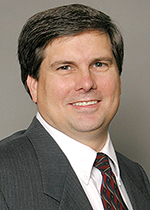
Dr. Todd Deaton
Editor
The article, “Baptists credited with beating marijuana push,” which appeared on the front of the April 7 issue of the Western Recorder, has been met with very strong reaction from proponents.
In our news story, Paul Chitwood, executive director of the Kentucky Baptist Convention, states, “It makes no sense to bypass the FDA and allow Kentuckians to smoke marijuana under the guise that it is somehow medically beneficial.” While supporters insist medical marijuana can be used effectively to treat symptoms of various maladies, opponents argue that many FDA-approved drugs provide better treatments for these ailments without potential for adverse health effects or addictions.
After the news article was posted on the KBC’s Facebook page, harsh criticism from other quarters began pouring in. “Two polar opposite views collided on the marijuana issue, Chitwood observed. “The Baptist view is rooted in common sense. The pro-marijuana view is rooted in a desire to have the right to legally smoke this gateway drug.
“We expected push back when the KBC Public Affairs Committee asked us to derail this legislation,” Chitwood said. “Often we’re criticized when we stand for right. That will not deter us.”
Though we find ourselves in disagreement over legalizing marijuana,in an effort for greater understanding, here’s a representative sample of some of the more civil Facebook voices that took exception to Baptists taking a stance:
Tj T. asked, “Why would you want to block something that God gave us to heal people with?”
Paul K. wrote, “I pity you & I pray God has mercy on your soul for condemning children to die from curable diseases. Cannabis cures, a plant in which God put here that bares fruit and produces seeds.”
Paul J. objected, “You are wrong!”
Lesa H. stated, “I am ashamed to be called Baptist now…. Ignorance is rampant in your organization. Please get educated before you ruin more lives!”
Scott F. remarked, “This is shameful for religion that teaches compassion and tolerance.”
Janice P. said, “Baptists better repent and change. Change their attitude to educate themselves in regard to medical marijuana. They have caused needless suffering and even death to those needing this medicine.”
Angel E. wrote, “This deeply saddens me. My daughter could see benefit from this medicine. She has brain cancer. Keeping medical cannabis from people who need it because you don’t understand the true medicinal value in it is unacceptable.”
Julie S. replied, “Who do you think you are to mess with people’s lives? My boyfriend has cancer and may have had a chance to benefit from this bill. The chemicals that are given to cancer patients typically cause more damage than the cancer. If a plant is beneficial to sick children and loved ones, then you have no right to take that away from them.”
Stephanie S. wrote, “What kind of people brag about something like this? You people are sick in the head… What would Jesus do? Probably let the sick and dying have access to a natural plant that could heal them or take away their pain.”
Sheryl L. responded, “Honestly, I agree with most KY Baptist decisions, but for someone on chemo medical marijuana can have very real benefits. I think fighting this was a mistake. It is a plant and like anything else it can have benefits or be misused.”
And Jacob K. jested, “Imagine the outrage if they were deprived of their fried chicken and sweet tea.”
Contacted by the Western Recorder for comment, Georgetown pastor Rick Hardison, chair of the KBC Committee on Public Affairs, responded, “We have taken our stand against medical marijuana not because we lack compassion on those who are suffering, but precisely because we care about our neighbors. The most loving thing we know to do is to let the professional medical establishment determine what is the best care for patients—not preachers or politicians.”
If derivatives of marijuana are ever approved by the FDA as safe and effective, then Kentucky Baptists would support their legalization, Chitwood added. “The reality is that over 7,000 kids belong to the state of Kentucky, most because of their parents’ addictions, and most of those addictions began with marijuana use. This case isn’t a simple matter of managing the pain of sick people who hope marijuana will give relief; we must be careful not to welcome pain into the lives of thousands more children by declaring marijuana safe and effective when it’s neither.”
While there’s obviously a difference of opinion concerning marijuana, we’re sensitive to the chronic pain and suffering of others. Though we remain unswayed in our stance that legalizing a gateway drug is both unwise and detrimental to society, the strong reactions to the KBC’s stance serve as reminders that there may well be members of our congregations who are hurting and in desperate need of relief, and who need us to be advocates for discovering safer alternatives.
Todd Deaton